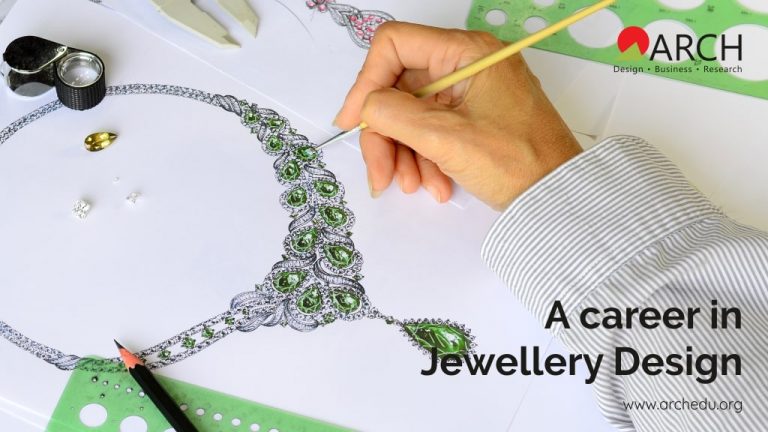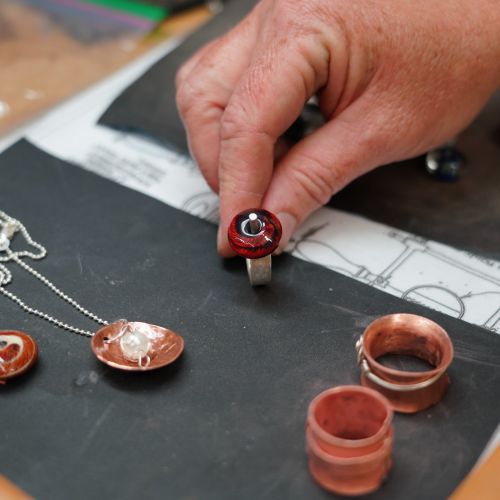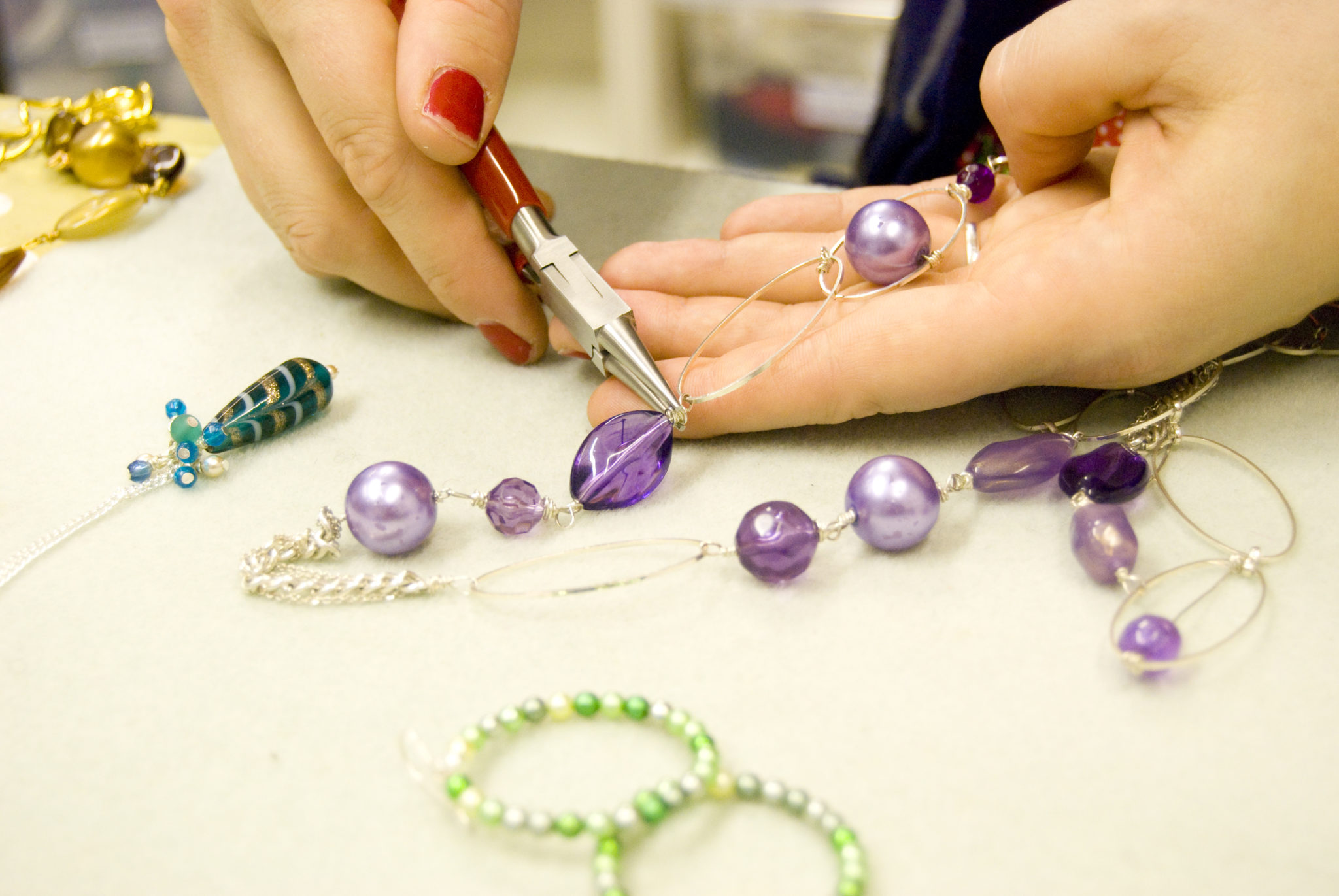A Guide to Jewellery Teaching Jobs in London: Shaping the Future of Craftsmanship
Related Articles: A Guide to Jewellery Teaching Jobs in London: Shaping the Future of Craftsmanship
Introduction
With enthusiasm, let’s navigate through the intriguing topic related to A Guide to Jewellery Teaching Jobs in London: Shaping the Future of Craftsmanship. Let’s weave interesting information and offer fresh perspectives to the readers.
Table of Content
A Guide to Jewellery Teaching Jobs in London: Shaping the Future of Craftsmanship

London, a global hub for creativity and artistic expression, offers a vibrant landscape for jewellery teaching. This sector thrives on the city’s rich history of craftsmanship, its contemporary design scene, and a growing appreciation for the artistry of jewellery making.
The Allure of Jewellery Teaching in London
Teaching jewellery in London presents a unique blend of opportunities:
- Prestige and Recognition: London is internationally recognized for its jewellery design and craftsmanship. Educators in this field benefit from the prestige associated with this reputation.
- Diverse Learning Environments: London boasts a diverse range of institutions, from renowned art schools to independent workshops and studios. This offers educators a variety of settings to share their expertise.
- Exposure to Global Talent: London attracts students and practitioners from around the world, creating a dynamic and diverse learning environment.
- Career Growth: The jewellery industry in London is constantly evolving, offering opportunities for professional development and advancement for educators.
- Impactful Contribution: Jewellery educators play a crucial role in shaping the future of this craft, fostering the next generation of talented designers and makers.
Understanding the Landscape
The jewellery teaching landscape in London encompasses various roles and institutions:
- Higher Education Institutions: Universities and art schools offer degree programs in jewellery design and making, requiring qualified instructors with expertise in various techniques and design principles.
- Further Education Colleges: These institutions provide vocational training in jewellery making, often focusing on specific crafts like silversmithing or enamelling.
- Independent Workshops and Studios: Many independent workshops and studios offer private lessons and workshops, catering to a diverse range of learners, from beginners to experienced makers.
- Community Centers and Adult Education Programs: These institutions offer introductory jewellery courses, providing access to the craft for a broader audience.
The Key Skills and Qualifications
To excel in a jewellery teaching role in London, several key skills and qualifications are essential:
- Technical Expertise: A strong foundation in jewellery making techniques, including metalwork, casting, enamelling, and gemstone setting, is crucial.
- Design Principles: A deep understanding of design theory, aesthetics, and historical influences is essential for guiding students in creating compelling jewellery pieces.
- Teaching and Communication Skills: Effective communication, patience, and the ability to explain complex concepts clearly are vital for engaging students and fostering their learning.
- Industry Knowledge: Familiarity with the current jewellery market, trends, and ethical considerations is valuable for providing students with a comprehensive understanding of the industry.
- Formal Qualifications: While not always mandatory, formal qualifications such as a degree in jewellery design or a teaching certification can enhance your credibility and marketability.
Finding the Right Opportunity
Securing a jewellery teaching position in London requires strategic planning and a proactive approach:
- Network and Build Relationships: Attend industry events, workshops, and exhibitions to connect with potential employers and mentors.
- Develop a Strong Portfolio: Showcase your teaching experience, technical skills, and design aesthetic through a compelling portfolio.
- Research Institutions and Opportunities: Identify institutions and organizations that align with your teaching interests and expertise.
- Tailor Your Application: Craft personalized cover letters and CVs that highlight your relevant skills and experience for each specific opportunity.
- Prepare for Interviews: Practice your teaching philosophy, articulate your approach to curriculum development, and be prepared to discuss your experience and passion for jewellery.
FAQs: Navigating the Journey
Q: What are the typical salary expectations for jewellery teaching jobs in London?
A: Salaries vary depending on the institution, experience level, and teaching load. Entry-level positions may offer £25,000 – £35,000 per year, while more experienced educators can earn £40,000 – £60,000 or more.
Q: Are there any specific qualifications required for jewellery teaching in London?
A: While a formal teaching qualification is not always mandatory, it can significantly enhance your chances of securing a position. A degree in jewellery design, a PGCE (Postgraduate Certificate in Education), or a relevant teaching certification can be beneficial.
Q: How can I gain experience in jewellery teaching before applying for a formal position?
A: Consider volunteering at community centers or workshops, teaching private lessons, or assisting experienced educators. This practical experience will build your confidence and demonstrate your teaching abilities.
Q: What are some key resources for aspiring jewellery teachers in London?
A: The following organizations can provide valuable support and resources:
- The Goldsmiths’ Centre: Offers workshops, courses, and networking opportunities for jewellery professionals.
- The Worshipful Company of Goldsmiths: Provides scholarships, grants, and support for jewellery education and training.
- The Society of Designer Craftsmen: Offers exhibition opportunities and networking events for jewellery makers and designers.
- The Association for Contemporary Jewellery: Promotes contemporary jewellery design and connects practitioners with educational institutions.
Tips for Success
- Stay Updated: Continuously develop your skills and knowledge by attending workshops, reading industry publications, and exploring new techniques.
- Build a Professional Network: Attend industry events, connect with other educators, and cultivate relationships that can lead to opportunities.
- Engage with the Community: Participate in local exhibitions, workshops, and events to showcase your work and connect with potential students.
- Embrace Innovation: Experiment with new techniques, explore emerging technologies, and integrate contemporary design trends into your teaching.
- Foster a Passion for Learning: Inspire students by sharing your enthusiasm for jewellery making, encouraging creativity, and celebrating their individual achievements.
Conclusion
Jewellery teaching in London offers a rewarding and fulfilling career path for passionate individuals who are dedicated to shaping the future of this timeless craft. By developing your technical skills, honing your teaching abilities, and embracing the dynamic landscape of London’s jewellery scene, you can contribute significantly to the continued growth and evolution of this artistic tradition.








Closure
Thus, we hope this article has provided valuable insights into A Guide to Jewellery Teaching Jobs in London: Shaping the Future of Craftsmanship. We hope you find this article informative and beneficial. See you in our next article!